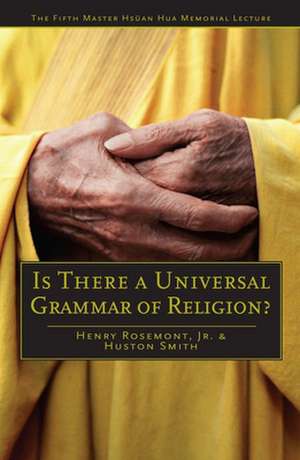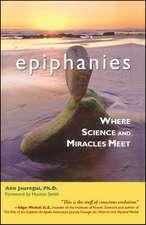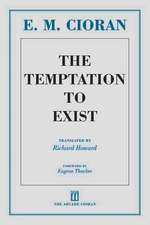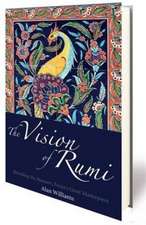Is There a Universal Grammar of Religion?: Master Hsuan Hua Memorial Lecture
Autor Henry Rosemont, Huston Smith Martin J. Verhoevenen Limba Engleză Paperback – 31 mai 2008
Preț: 103.72 lei
Nou
Puncte Express: 156
Preț estimativ în valută:
19.85€ • 20.72$ • 16.43£
19.85€ • 20.72$ • 16.43£
Carte disponibilă
Livrare economică 14-28 martie
Preluare comenzi: 021 569.72.76
Specificații
ISBN-13: 9780812696448
ISBN-10: 0812696441
Pagini: 110
Dimensiuni: 154 x 226 x 9 mm
Greutate: 0.2 kg
Editura: Open Court Publishing Company
Seria Master Hsuan Hua Memorial Lecture
ISBN-10: 0812696441
Pagini: 110
Dimensiuni: 154 x 226 x 9 mm
Greutate: 0.2 kg
Editura: Open Court Publishing Company
Seria Master Hsuan Hua Memorial Lecture
Recenzii
“A splendid ‘Dialogue Concerning World Religions’ between two eminent scholars and outstanding authors! Unlike the often rather ‘fundamentalist’ debates between fervent believers and uncompromising ‘rationalists’ here we find a refreshingly profound, respectful, and truly sympathetic exchange between a secular and a sacred view of life and the world around us. Instead of simply dismissing each other’s positions, Huston Smith and Henry Rosemont, Jr., set a new standard for exploring together the perennial question of why, or why not, to believe in a God ‘above us.’”
— Hans-Georg Moeller, author of The Philosophy of the Daodejing (2006) and Luhmann Explained (2006) and translator of the Daodejing (2007).
— Hans-Georg Moeller, author of The Philosophy of the Daodejing (2006) and Luhmann Explained (2006) and translator of the Daodejing (2007).
Descriere
In this provocative volume two important scholars of religion, Huston Smith and Henry Rosemont, Jr., put forth their viewpoints and share a probing conversation. Though the two diverge considerably in their accounts of religious faith and practice, they also agree on fundamental points. Huston Smith, author of the important work The World’s Religions, has long argued for the fundamental equality of the world’s religions. Describing a “universal grammar of religion,” he argues that fourteen points of similarity exist among all of the major religious traditions and that these similarities indicate an innate psychological affinity for religion within the human spirit. As Noam Chomsky has argued that humans are hardwired to use language, Smith similarly argues that humans are hardwired for religious experience. In response, Rosemont explicates his humanistic vision of the world, in which the “homoversal” tendency to contemplate the infinite is part of our co-humanity that endures across time, space, language, and culture. Rosemont also elaborates upon Noam Chomsky’s theory of universal grammar and its relevance to Smith’s ideas about the similarities among religions. This insightful exploration of the most essential basis of religion provides a new direction for comparative-religion scholars everywhere.

















